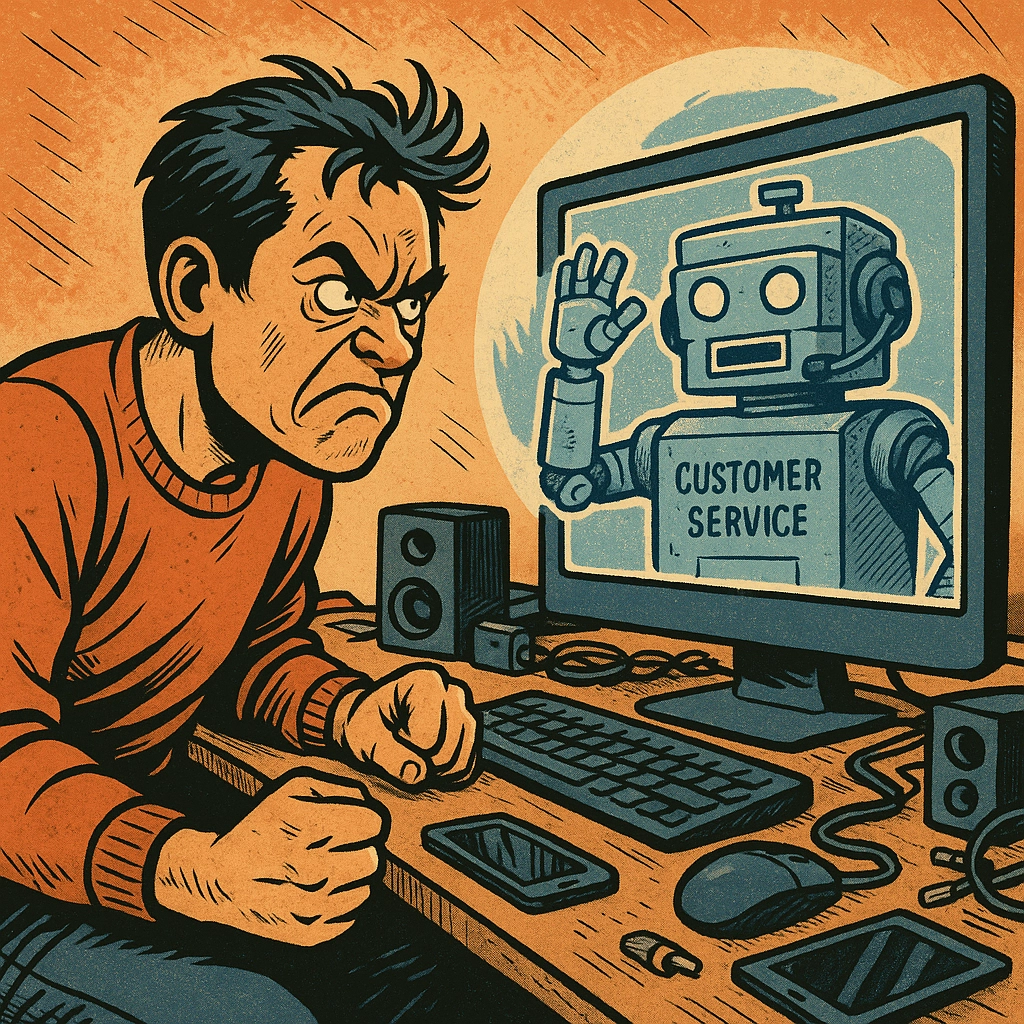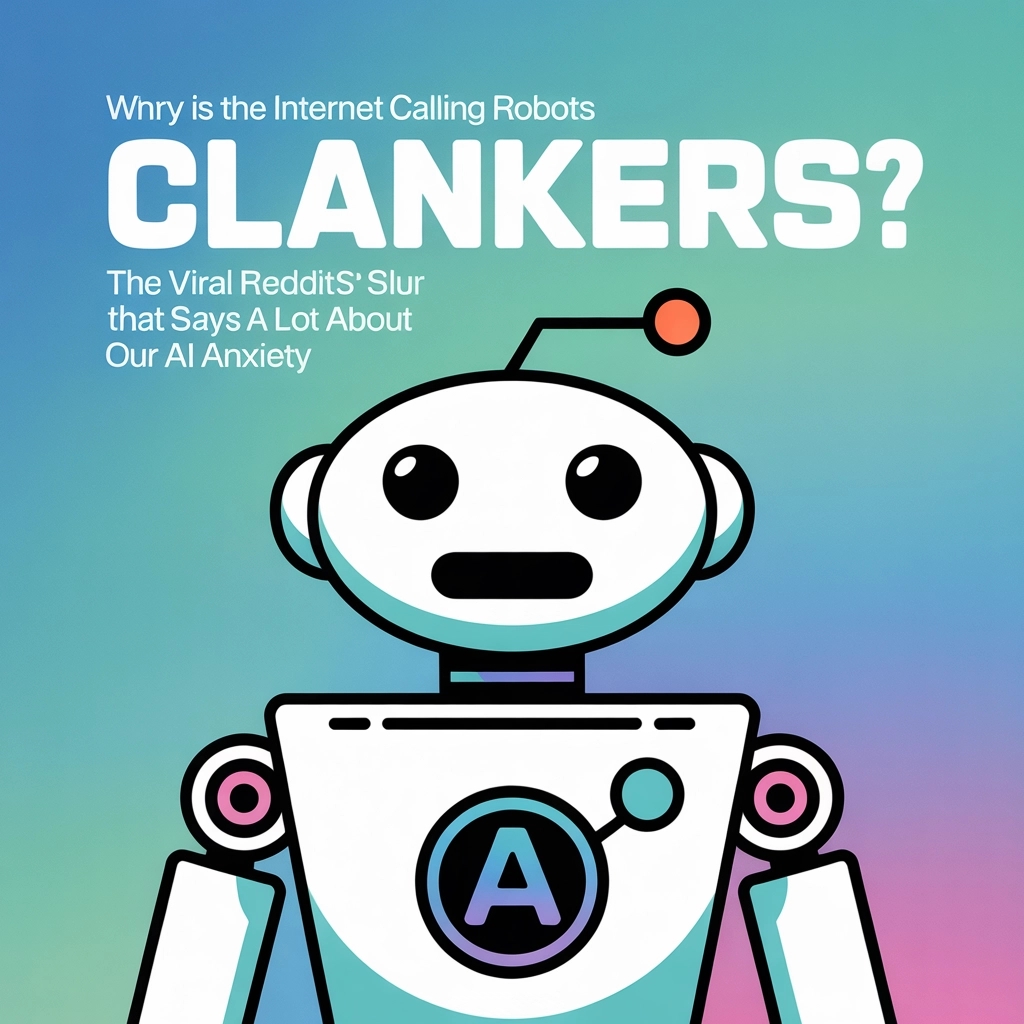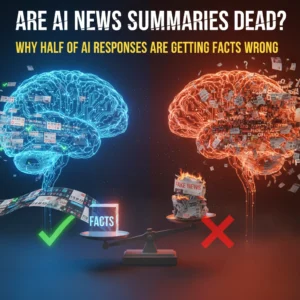slug: why-is-the-internet-calling-robots-clankers
Have You Called a Robot a “Clanker” Yet?
Heard anyone shout “ugh, a clanker picked up” after getting stuck with an AI chatbot or robo-caller lately? If you hang out on Reddit, X (formerly Twitter), or near any Gen Alpha teens, you’ve definitely seen the word flying around. “Clanker,” a term that started as a Star Wars insult, has launched itself into the internet mainstream—and it says a lot about how we’re feeling about technology in 2025.
So… how did a sci-fi slur become our way of venting about robots and artificial intelligence? And what does calling a bot a “clanker” really mean?
From the Galaxy Far, Far Away to Your Customer Service Line
It didn’t start on TikTok, but in a galaxy far, far away. The word “clanker” originated in the 2005 video game Star Wars: Republic Commando, then took off in the Star Wars: The Clone Wars animated series. Clones would toss the insult at Separatist battle droids: “Clankers incoming!” The droids were never the heroes—they were the bumbling, expendable, not-quite-alive opposition. And nobody in the show ever let them forget it.
The word itself is fun to say—it's literally the sound people imagine for rusty metal or robots banging together. It’s onomatopoeic: “clank” + “er.” In Star Wars, it’s not just a joke. “Clanker” became a stand-in for how droids are belittled and dismissed—an allegory for all kinds of real-world prejudice, but, you know, with lasers.
Fast-forward to 2025, and the insult’s context has completely changed. Instead of battle droids on a distant planet, “clankers” are the bots we deal with every day—on customer service calls, workplace platforms, and even social feeds. The word has become a meme, a protest, and a vent for frustration with AI’s growing role in our lives, all rolled into one.

Why “Clanker” Blew Up: The 2025 Surge
So what triggered this sudden clanker-mania? As AI started replacing humans in places we didn’t really want it—your bank helpline, pizza order lines, or even support chats at your doctor’s office—the term started to go viral again. In early 2025, one viral post said, “Needed urgent bank customer service and a clanker picked up. Of course.” That post hit over 200,000 likes, and suddenly “clanker” was everywhere.
But it’s not just customer service bots. People started calling any robot (or anything AI-generated that annoys them) a clanker: self-checkout kiosks, security drones, even AI-powered HR emails. If it “talks” to you but isn’t human, it’s a clanker.
Gen Alpha (that’s today’s teens and tweens) grabbed onto the word hard. For them, “clanker” is used alongside other buzzy new slang like “crashout” and “67,” but nothing matches the low-key scorn of calling something a clanker. It’s snappy, flexible, and—let’s be real—a little bit funny.
Is “Clanker” Just a Meme, or Something Deeper?
Let’s be honest—nobody likes talking to bots. But “clanker” has stuck around for a bigger reason: it’s part of how people are dealing with their anxieties about AI and automation. Here’s what’s behind the rise of the term:
- Job Anxiety: Loads of jobs are being automated, from truck driving to minor surgery. That’s scary. “Clanker” is a way for people to push back, even if it’s just with a joke.
- Lost Human Touch: More and more daily interactions, from checking out groceries to getting tech support, are handled by bots. People want to talk to humans—and feel annoyed (or ignored) when they can’t.
- Anger at Annoying Tech: No one likes it when a robot can’t answer basic questions or refuses to connect you to a human. “Clanker” is a go-to word for all those little moments of tech-driven aggravation.
- A Need for Control: By mocking AI with names like “clanker,” people feel a little more in charge of an increasingly tech-filled world.
- Sci-Fi References Are Comforting: Using fiction as a lens helps soften real-world fears and lets people joke about it instead of panicking.
And it’s not just “clanker”—there’s also “wireback,” “tinhead,” and (less family-friendly) “cogsucker,” all circulating online. Whenever humanity faces something new and intimidating, we find or invent language to process it.
Relatable Techfail: A Clanker in the Wild
I missed a flight last month because of a "clanker." Well, not literally, but it felt that way. My airline's app said customer service was "experiencing high volumes," and after a half-hour on hold, I was greeted by a relentlessly chipper AI. It could read me policies, but it absolutely could NOT understand “my connecting flight is leaving in 45 minutes and the gate changed.” After going in endless loops (“Would you like to hear our baggage policies again?”), I finally said, “Let me talk to a human!”—but nope, the bot just didn’t care.
By then, #clanker was trending on X. I posted my story, and half the comments were people sharing their own “clanker” incidents. We were all annoyed, but at least we could laugh about it.
![]()
The “Clanker” Checklist: When Does Tech Deserve the Shade?
If you’re wondering when it’s fair to drop the C-word (the clanker one), here’s a quick rundown:
- The bot doesn’t actually answer your question
- It pretends to be “listening” but just spouts rules
- It stops you from talking to a real person
- You’re forced to repeat yourself more than twice
- The solution is so unhelpful it feels like a parody
- It just… keeps… clanking along
The more bots take over human spaces, the more you’ll hear “clanker,” whether in memes, group chats, or rants to your friends.
Why This Language Actually Matters
Calling bots “clankers” isn’t just teenage trolling or meme culture run wild. It’s a signal flare that people are worried about where technology is headed. Every time someone posts “ugh, a clanker did [x],” they’re expressing:
- frustration with the loss of human connection,
- skepticism about AI’s promises,
- and this low-key fear that robots might not just take our jobs—but our voices, too.
Language helps us draw boundaries. By giving AI a nickname, we’re keeping a little power for ourselves. “Clanker” says: “You may be taking over, but we’re not rolling out the red carpet just yet.”

Open Question: Can “Clanker” Actually Change Anything?
So, what happens next? Will “clanker” just fade away like old memes, or will it keep evolving as AI gets smarter (and maybe less clanky)? Will calling out bots push companies to put humans back in the loop, or is this just how things will be from now on?
Have you had a “clanker” encounter? Or do you think we all need to cut the bots some slack? Let’s hear your stories—because if anyone’s going to help humanize the internet, it’s you (not the clankers).







